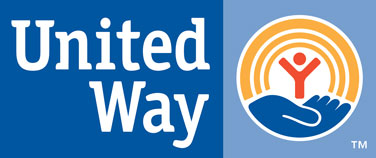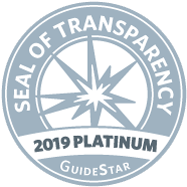5 Useful Tools to Capture Your Parent’s Legacy
Your parents are an instrumental part of who you are. From your first steps across the living room floor to your steps of achievement across the stage at graduation, your parents have watched you grow and have contributed to elements of your personality. Perhaps you never even realized the extent of this dedication until you became a parent yourself. When a parent is facing a life-limiting illness, it’s difficult to process the emotions surrounding the event.
During times like this, we find that it is important to capture your parent’s legacy. Not only does this help you cope with the intense feelings you are experiencing, but it also gives you a beautiful memory to pass down to your children, grandchildren, and even great-grandchildren who would have never had an opportunity to meet your parents.
We’ve compiled five useful tools you can use to capture your parent’s legacy.
1. Scrapbooking
Scrapbooking doesn’t have to be a labor-intensive, time-consuming event filled with perfectly designed pages and matching stickers. However, you may find that working with your parent to create this scrapbook makes you want to spend more time working on the project with them.
Some items you may want to put in the scrapbook can include:
- Photographs, particularly of milestone events such as weddings and family reunions.
- Any bulletins or programs from special church services or civic events.
- Photocopied pages from your parent’s high school or college yearbook.
- Copies of news articles or company newsletters that feature your parent.
- Ticket stubs from plays, special events or even popular movies your parent liked.
2. Interviewing
When your parent is gone, many of their wonderful stories and memories go with them. It’s simply too easy to forget these beautiful gems. We suggest interviewing and making a video of your parent. Not sure what to ask? Just start talking. Some of the best interviews don’t come from answering questions, but they take a life of their own, enabling your parent to reveal funny stories, anecdotes and information about other relatives.
You may want to have your parent interviewed by one of their grandchildren. Younger children can ask simple questions like “What’s your favorite ice cream flavor?” or “What was your favorite vacation?”
3. Creating a cook book
Whether it’s the secret barbecue sauce or a delicious homemade cookie, your parent has the key to culinary masterpieces. In many cases, these recipes may not be written down, but rather etched into memory. Record these family favorites and compile them into a cook book. This is a wonderful way to honor your parent’s legacy, and copies make a wonderful gift for relatives (unless, of course, you don’t want the world to know about the “secret ingredient” that sets your parent’s cooking apart from the rest.)
4. Completing a family tree
Even if you’re not particularly interested in genealogy, a family tree is a wonderful legacy for generations to come, and now online sites such as Ancestry.com make one even easier to create. Often, your parent will have insights and stories into relatives that can’t be found online. When you’re done, create a drawing or poster of the tree to hang in your home. Your children may like to get in on the action and contribute some of their own pieces of artwork.
5. Honoring them by making a donation to a favorite charity or place.
Did your father love to walk the dog in a local park? Was your mother involved in her church? A donation is a wonderful way to honor them while they are still with you and ensure that their legacy lives on. Perhaps you’d like to donate a park bench, plant a tree, or donate money to the local civic club or religious organization. Your parent will appreciate that his or her legacy will be remembered by people and places near and dear to hearts.
Make sure these memories are digitally archived!
Too often, the unexpected happens. Fire, floods and other disasters can destroy priceless family artifacts. If you complete a scrapbook or videotape an interview, we strongly encourage you to digitally backup your work or save it to the cloud or on a Google drive. Not only does this mean that you can easily share these items with other loved ones, they are kept save in case of the unexpected.
We want to help you capture your parent’s legacy
Hospice is not about the last months of life — it’s about living those months to the fullest. We work with our patents to enable them to continue to spend time with the people they love and doing the activities they enjoy. Not sure if hospice or palliative care is needed for your loved one? You can complete this online survey to help you determine which care is right.
Since 1980, Lower Cape Fear LifeCare (formerly Lower Cape Fear Hospice) has served patients and their families throughout southeastern North Carolina, serving patients where they live – in their homes, hospitals, assisted living and skilled nursing facilities. For more information on how to start the conversation about hospice, please call 1-800-733-1476.








